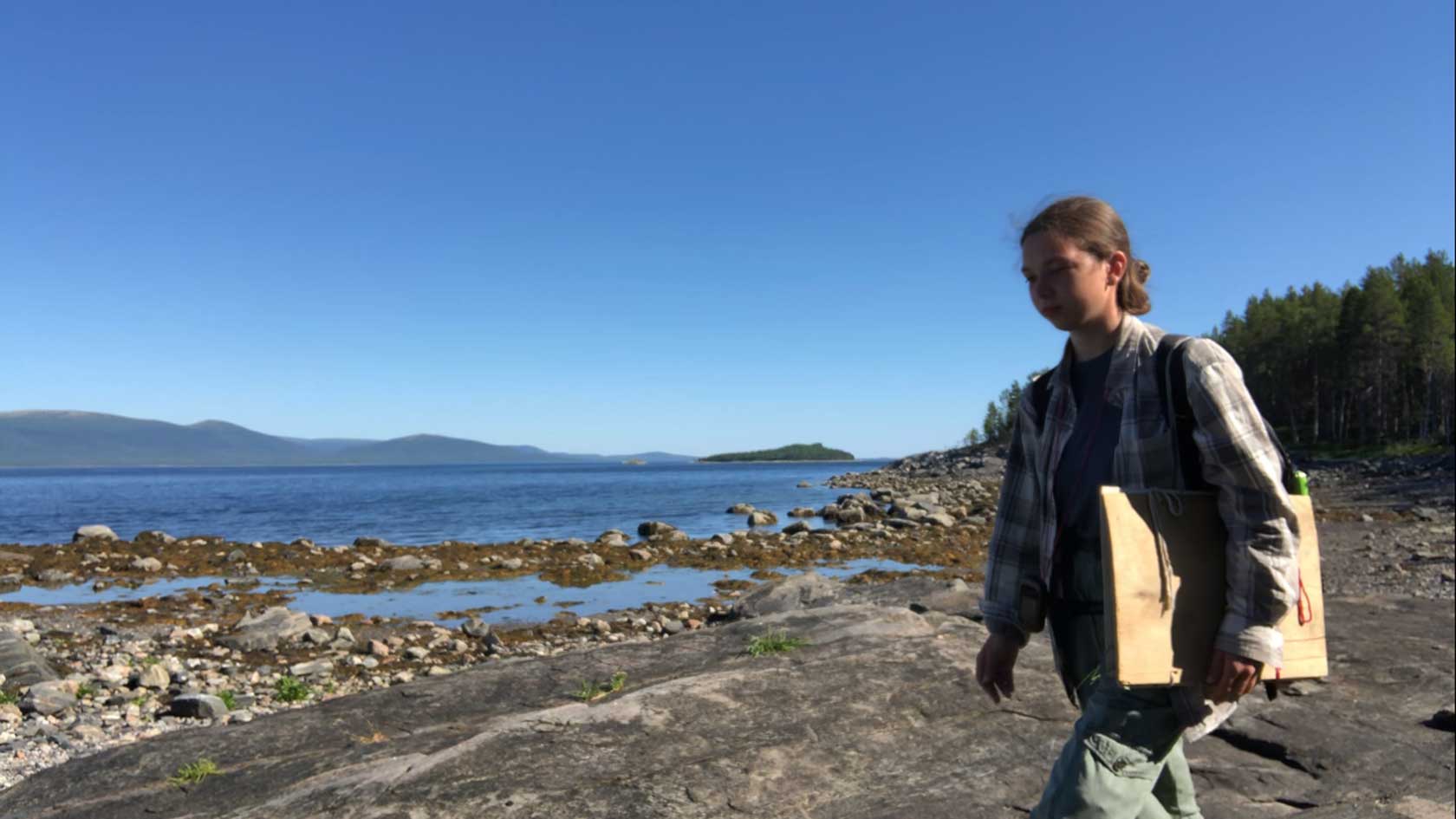In 2023, Nornickel started the Science Volunteering program. During the summer holidays, students from sector-oriented universities work in Arctic nature reserves and contribute to the studies of plant and animal life in the specially protected natural territories. Starting from 2025, they have been joined by Nornickel's team. The project aims to support biodiversity in the regions where Nornickel has apresence, attract new talent and help nature reserves in research and scientific programs.
How I spent my summer
Nornickel has a long track record of cooperation with Russia's top universities which offer degrees in biological and environmental sciences, with nature reserves and national parks. Undergraduates and master's students gain experience in field research while specially protected natural territories need a helping hand with in-house scientific studies. In the Science Volunteering program, Nornickel acts as a facilitator between the two parties.
Prior to the start of the short Arctic summer, nature reserves provide Nornickel with a list of target activities, such as herbaria collection, zooplankton monitoring and bird counts. Nornickel then forwards the applications to higher educational institutions to select candidates for the tasks.
Prior to the start of the short Arctic summer, nature reserves provide Nornickel with a list of target activities, such as herbaria collection, zooplankton monitoring and bird counts. Nornickel then forwards the applications to higher educational institutions to select candidates for the tasks.
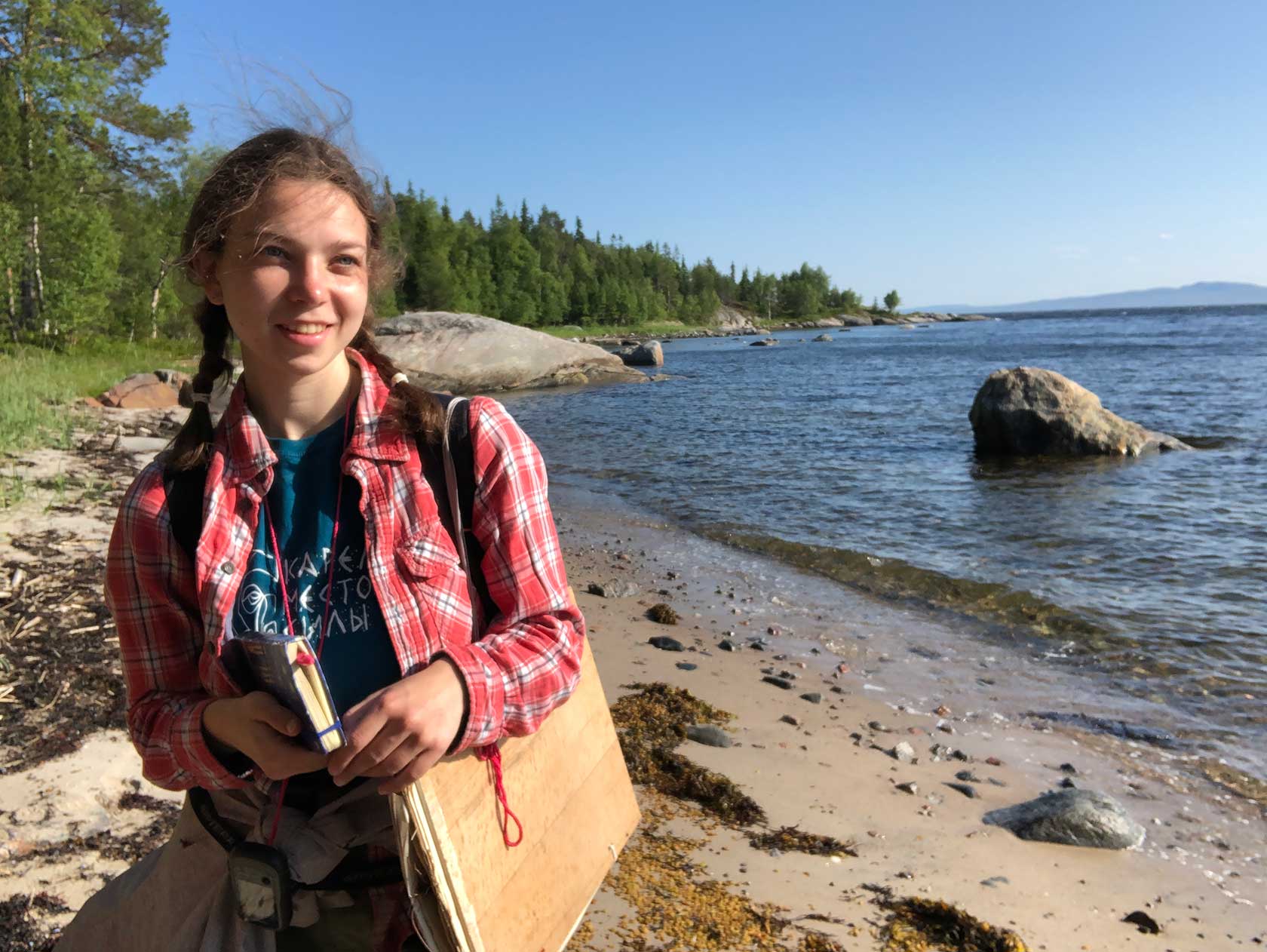
NADEZHDA KATRUSHENKO,
student of the Plant Ecology and Geography Department, Biology Faculty at the Moscow State University:
"I was offered a chance to participate in the project by one of my scientific advisers. My master's thesis is actually on the flora of the Kandalaksha Gulf hosting the nature reserve. I have walked across several islands to compileplant lists and collect herbaria of unique specimens that require further research.
The views there are stunning. And interaction with local workers has left me with the most positive impressions. One of the nature reserve workers drove me by boat between the islands. Without his help, I would not have been able to complete my task and collect inputs for the thesis".
There are no special requirements for candidates wishing to join the program. What matters the most is the person's dedication to field research and commitment to work hard in complex conditions of the tundra with swarms of mosquitos, and no internet or amenities. In some cases, specific competency is required, but more often students are trained in the field. Each volunteer is assigned a scientific worker from the nature reserve which is a path to knowledge unobtainable in a classroom.
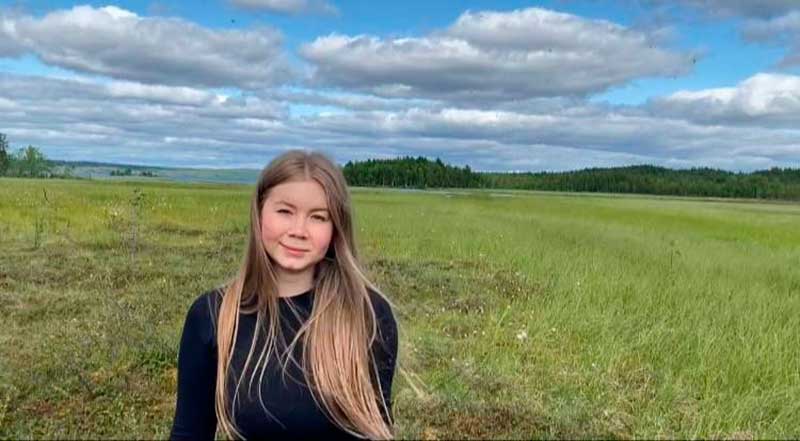
DARYA SHADRINA,
graduate of Mendeleev University of Chemical Technology, Environmental Management Faculty of the Green Chemistry for Sustainable Development Department:
"I have visited the Arctic before but it was my first time with the Science Volunteering program. In the Pasvik Nature Reserve, I wanted to watch environmental professionals at work to restore biodiversity. I kept records of waterfowl broods, collected herbaria for the nature reserve's environmental awareness unit, extracted the insect traps out from the ground, used a camera drone to make a video for the nature reserve, took care of the Red Data Book plants in the greenhouse and learned how to ring birds.
But I was most fascinated by the Varlam Island where I spent a week. In years past, its terrain was severely damaged by human activity, and its ecosystem was destroyed, including forests and birds. The recovery began after the island was designated as part of the nature reserve. As a person who pursues environmental studies, it was very interesting and valuable for me to observe this process".
The Science Volunteering program builds a bridge between theory and practice. Student volunteers help the nature reserve by participating in large-scale field research as it would take much more time for the workers with only in-house resources at hand. In its turn, Nornickel invests in the future by supporting enthusiastic young people and training the new generation of highly qualified professionals to work in the Arctic.
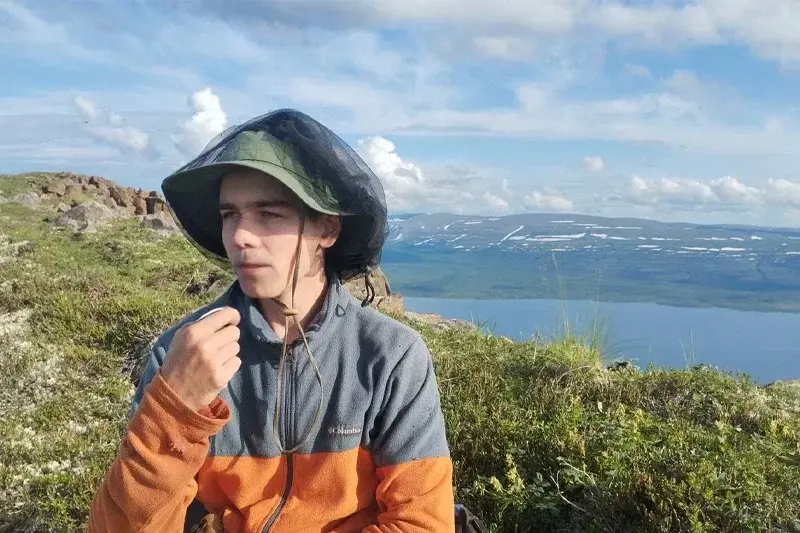
ALEKSEY ZAGAINOV,
graduate of Lomonosov MSU Biology Faculty with the Hydrobiology Department, master's student of the Ocean Studies Institute:
"I have dedicated my life to science, so it was important for me to get hands-on experience in field data collection on such a remarkable site as the Putorana plateau. We studied plankton, small and big benthon living in ponds.
We've obtained unique findings as small benthic fauna species are profoundly understudied and it is essentially important for ecological research to estimate species proportions. The trip has broadened my horizons and introduced me to very interesting people and professionals in their field. I will use the findings to write scientific articles. It would be great if I have a chance to return to the Putorana plateau".
In July 2025, seven students and university graduates took part in the Science Volunteering program, spending 2-4 weeks in the Taimyr, Pasvik, Kandalaksha and Lapland nature reserves depending on how long each of them wanted to stay, and the scope of required work.
Nornickel has organized the project, paid for roundtrip tickets to and from the nature reserve, supported and coordinated science volunteers throughout the program. The program was very helpful for nature reserves in implementing their initiatives and provided priceless practical experience for the volunteers.
Nornickel has organized the project, paid for roundtrip tickets to and from the nature reserve, supported and coordinated science volunteers throughout the program. The program was very helpful for nature reserves in implementing their initiatives and provided priceless practical experience for the volunteers.
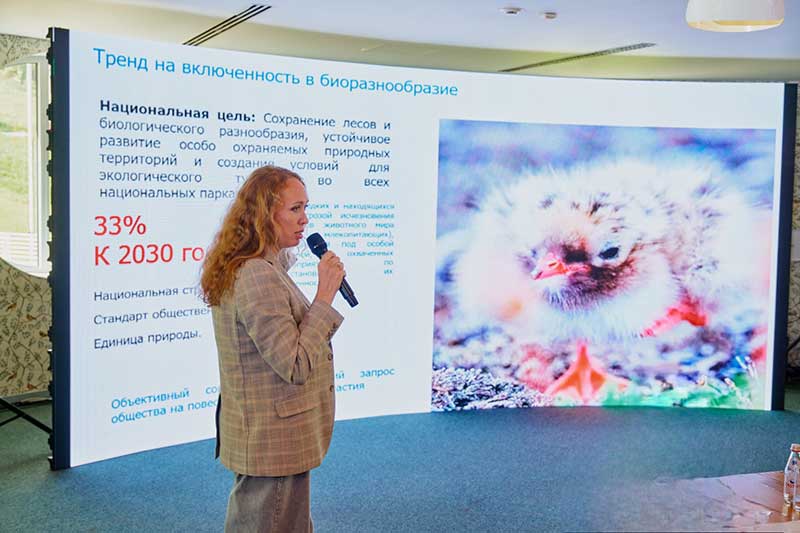
EVGENIYA ALKOVA,
head of discipline, Biodiversity Conservation Coordinator at Nornickel:
"Science volunteering requires boldness from young people. Not all city residents are prepared to travel to the Arctic to live and work in the tundra. These guys, however, are passionate about their jobs, deeply absorbed in the tasks and committed to achieving progress. Their role models were coordinators working in the nature reserves. Many of them have have been at their job for 40-50 years and some have worked here for several generations. In a setting like this, one cannot but strengthen one’s conviction to pursue science.
Over the two years, we have been able to recognize the value added by the Science Volunteering program". Students and graduates from sector-specific universities engaged in the program have a chance to be potentially recruited by the nature reserves and possibly Nornickel.
Currently, Nornickel is developing a 10-year biodiversity strategy to become the first Russian company to utilize a corporate approach focused on effective guidelines and standards, including a Methodological framework for the structure and scope of Biodiversity Conservation Programs for Commercial Organizations approved by Resolution No. 35-r of the Russian Ministry of Natural Resources and Environment. This strategy will include the operation and role of scientific volunteering as a separate action area".
How many cones are there on a tree?
2025 was the year when Nornickel's team first joined the science volunteering initiative. The pilot project was launched during the Poneslos eco-marathon.
For ten years now, volunteers from the company have been helping nature reserves that Nornickel cooperates with in regions where it has a presence. Conservation volunteering is one of the most popular areas of volunteer work among Nornickel's staff. It used to be solely about land improvement, environmental awareness and tourism, and Nornickel has built over 20 kilometers of eco-trails, numerous crossings, observation decks and recreational areas.
Today, volunteers also have a chance to immerse themselves in the innermost experience featured at a nature reserve — scientific work to restore and protect the Arctic biodiversity.
Ca. 40 volunteers from Nornickel worked in the Pasvik, Lapland and Kandalaksha nature reserves in Murmansk Region, the Daurian Nature Reserve in Zabaykalsky Territory and Krasnoyarsk Pillars on the Taimyr Peninsula during August-September, selected for having excelled in motivation, competency and dedication-for-field-work assessment.
For ten years now, volunteers from the company have been helping nature reserves that Nornickel cooperates with in regions where it has a presence. Conservation volunteering is one of the most popular areas of volunteer work among Nornickel's staff. It used to be solely about land improvement, environmental awareness and tourism, and Nornickel has built over 20 kilometers of eco-trails, numerous crossings, observation decks and recreational areas.
Today, volunteers also have a chance to immerse themselves in the innermost experience featured at a nature reserve — scientific work to restore and protect the Arctic biodiversity.
Ca. 40 volunteers from Nornickel worked in the Pasvik, Lapland and Kandalaksha nature reserves in Murmansk Region, the Daurian Nature Reserve in Zabaykalsky Territory and Krasnoyarsk Pillars on the Taimyr Peninsula during August-September, selected for having excelled in motivation, competency and dedication-for-field-work assessment.
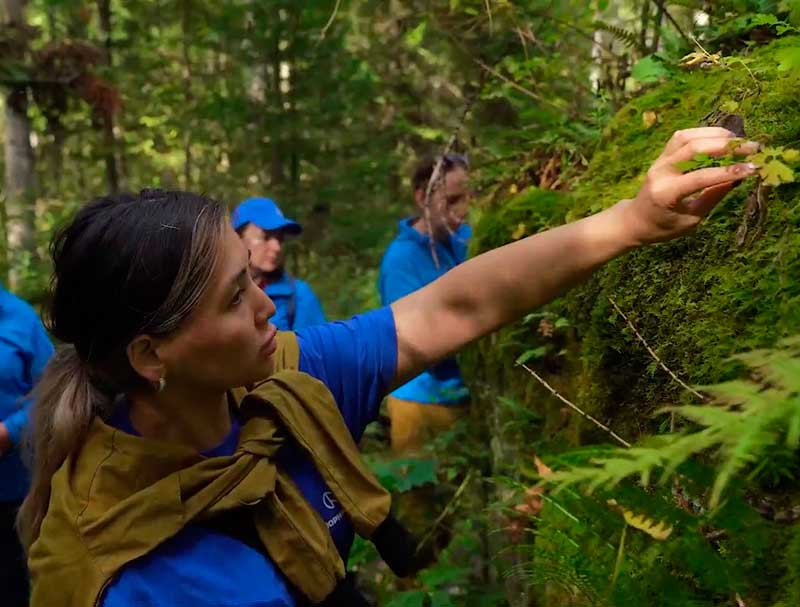
Nornickel's team picked and weighed berries, took part in a route census, assisted in the study of small mammal and insect communities. They even counted cones on trees! And it is only a seemingly simple task. Each spruce is at least 5 meters tall, so the job always required a set of binoculars or extra tools.
Volunteers set special traps for invertebrates, collected the captured species and handed them over to experts after primary prepping arrangements. Together with scientists, volunteers performed an integrated assessment of the Lapland Nature Reserve ecosystem.
Involvement in the nature reserve work is primarily of uttermost importance for the volunteers. It is a chance to see the world from a completely new and unexpected perspective, discover a new love for nature, forest and homeland. At the same time, it is a tangible way to help researchers in nature reserves and national parks. Nornickel's team has already made an extensive contribution to the research in specially protected natural areas and conservation parks of the fragile Arctic ecosystem. The work continues!
Volunteers set special traps for invertebrates, collected the captured species and handed them over to experts after primary prepping arrangements. Together with scientists, volunteers performed an integrated assessment of the Lapland Nature Reserve ecosystem.
Involvement in the nature reserve work is primarily of uttermost importance for the volunteers. It is a chance to see the world from a completely new and unexpected perspective, discover a new love for nature, forest and homeland. At the same time, it is a tangible way to help researchers in nature reserves and national parks. Nornickel's team has already made an extensive contribution to the research in specially protected natural areas and conservation parks of the fragile Arctic ecosystem. The work continues!
Photos by Nornickel
September, 2025
September, 2025






